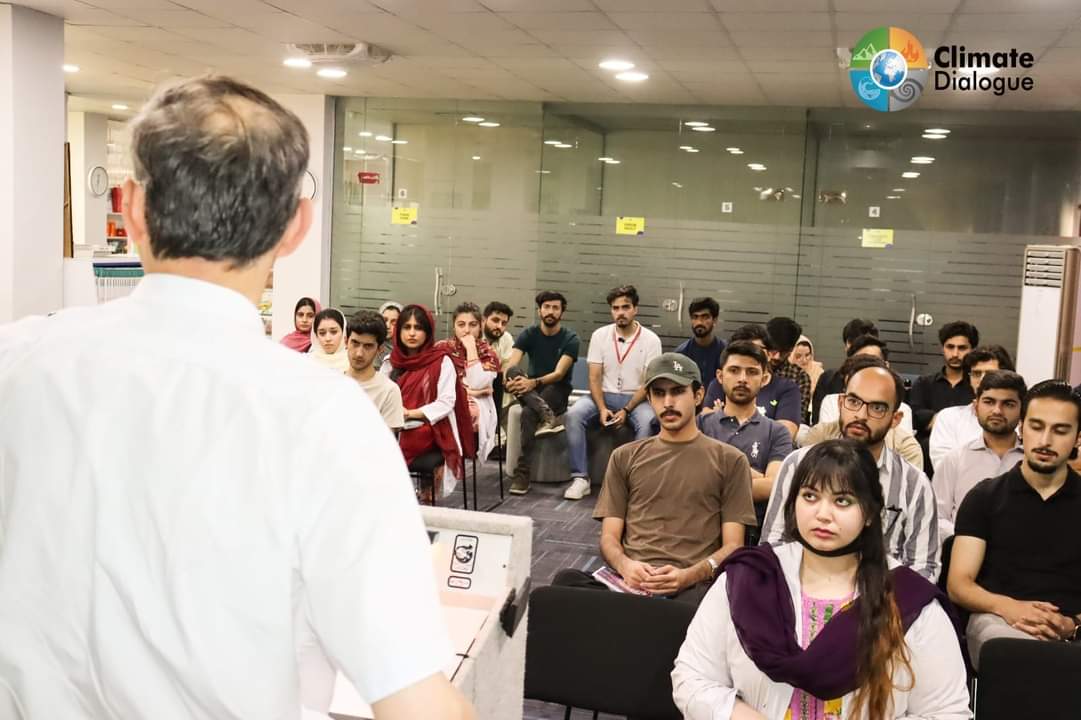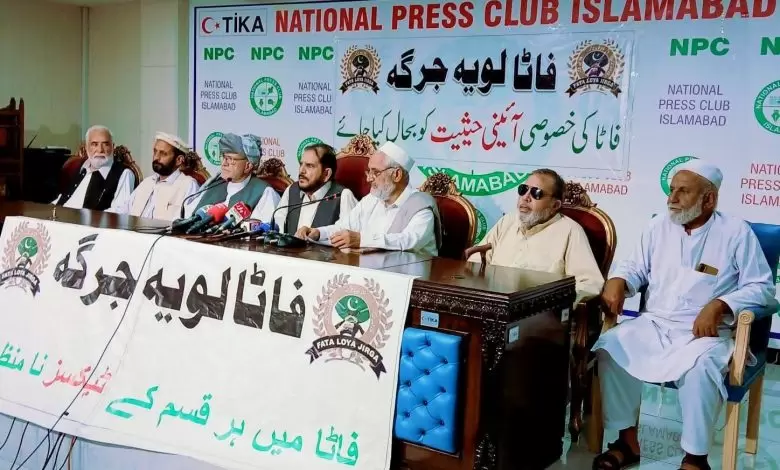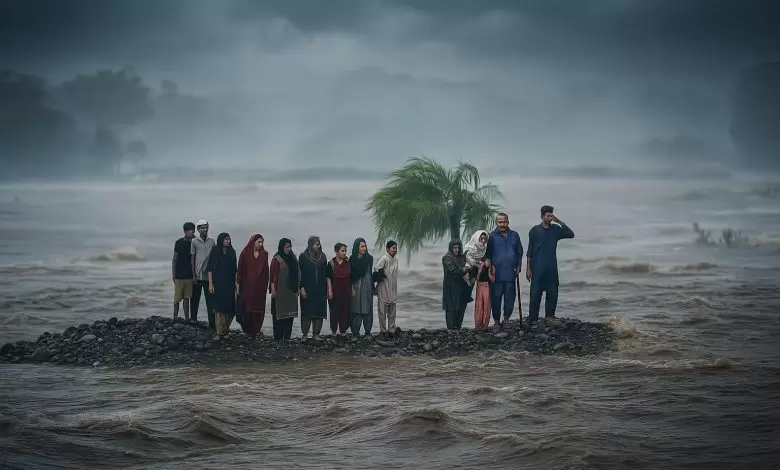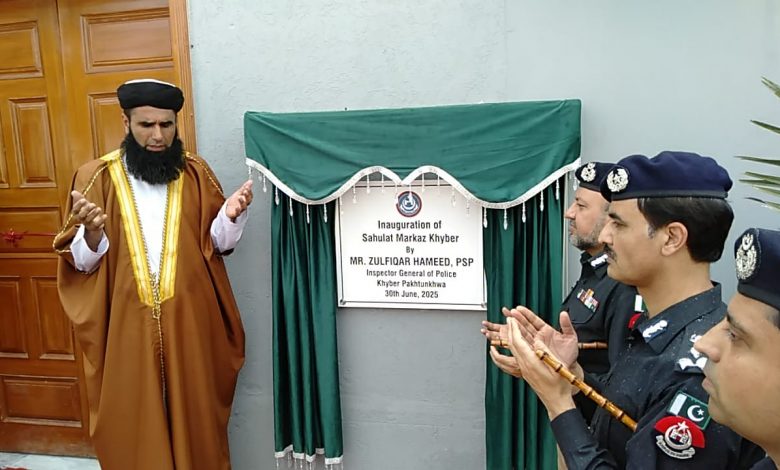
Muhammad Fahim
Shahab-Ud-Din, a resident of Peshawar, found a renewed sense of purpose a few years ago when he encountered alarming information about climate change and water scarcity. Recollections of his childhood, marked by vivid memories of 'Commander Safeguard' from school days, catalyzed a newfound commitment. While there wasn't an immediate trigger for action, he gradually became more attuned to the implications and challenges posed by climate change.
However, it wasn't until 2022, witnessing the devastating floods in Pakistan, that Shahab truly grasped the gravity of the situation. The loss of lives and financial setbacks to the nation propelled him to a realization: climate change wasn't a distant concept from textbooks; it was a harsh reality manifesting itself.
The scorching heat in Peshawar in 2023, surpassing even the temperatures of Sibi and Jacobabad at 49 and 50 degrees Celsius, further underscored the urgency of addressing climate change. This profound realization became the driving force behind Shahab and his team's decision to embark on a transformative project called 'Climate Dialogue Peshawar' (CDP).
Climate Dialogue Peshawar: Why and What for?
In a conversation with TNN, Shahab delved into the overarching goals of the project, emphasizing its inherently long-term nature. The primary objective was to engage school students actively, recognizing them as the key to cultivating an environmentally conscious future.
Reflecting on his school days, Shahab recalled activities like 'Commander Safeguard,' lamenting the absence of such initiatives in contemporary schools, particularly those addressing climate change. He believed that by sensitizing children and conducting awareness sessions, the foundation could be laid for a generation capable of instigating real change and confronting the looming threat of climate change.
Shahab outlined the three pivotal steps of the Climate Dialogue Peshawar project: awareness, engagement, and the establishment of a sustained dialogue.
Also Read: Tragic Attack Claims PTI District Leader’s Life in Swabi
The initial phase involved organizing awareness sessions in 15 public and private schools across Peshawar, Khyber, and Mohmand. The sessions aimed to impart fundamental knowledge about climate change, its causes, effects, solutions, and individual responsibilities. To ensure accessibility, the team developed a 20-page booklet in Pashto, Urdu, and English, offering a simplified understanding of these concepts. The booklet, designed for the general public, families, children, and youth, addressed crucial aspects of climate change and outlined individual roles in combating it. Additionally, the team compiled a list of 12 small actions that individuals could incorporate into their daily lives to contribute to climate change mitigation.
Moving to the second phase, engagement, Shahab detailed the arrangement of three to four competitions, including videography, photography, art, and poster competitions. These contests sought to extract public perspectives on climate change in tangible forms.
Recognizing the inherent problem-solving nature of creative endeavors, Shahab aimed to harness the creativity of the youth to express their ideas through videos, pictures, posters, and artworks. The team also produced brief animation videos tailored for children and youth, conveying the message of the dangers of climate change and its impact on life, water, and air. The videos additionally provided actionable steps individuals could take to address climate change.
The final phase centered on establishing a sustained dialogue. Shahab shared that six to seven topics were discussed, bringing together government representatives, NGOs, the private sector, university teachers, and journalists. Journalists shed light on the role of media in addressing climate change, university teachers emphasized the need for focused research, and the private sector discussed strategies for industries to tackle climate change. Government agencies such as the Khyber Pakhtunkhwa Environmental Agency, international NGOs like Helvetas, and the National Disaster Risk Management Fund collaborated to create a comprehensive dialogue. The aim was to amplify the impact of these initiatives, expanding their reach and ensuring their sustainability.
How was the audience's response?
While some school administrations offered discouraging responses, denying the project organizers permission to conduct awareness sessions, Shahab acknowledged the challenges. However, he highlighted the overwhelmingly positive response from the target audience, particularly parents and families. The competitions successfully engaged children and mobilized families, drawing participants from various parts of Khyber Pakhtunkhwa and major cities like Lahore and Faisalabad. Shahab expressed gratitude for the extensive engagement, noting the project's success in extending beyond Peshawar to other districts in Khyber Pakhtunkhwa.
Underscoring the need for collective efforts at all levels, Shahab emphasized that addressing climate change required ongoing practical steps and dedicated work.
CDP In the Eyes of Experts
In conversations with TNN, Faheem Khan, a climate change and global warming PhD holder, concurred with Shahab's views. He stressed the urgent need to make the younger generation aware of the causes and effects of climate change.
Muhammad Daud Khan, an environmental journalist, commended the project for aligning with the UN's SDGs, emphasizing the importance of integrating climate change education into academic curricula at all levels.
Daud Khan acknowledged Khyber Pakhtunkhwa's climate change policy but highlighted challenges in implementation due to financial constraints. He called for sustained practical steps and increased efforts to address climate change comprehensively.
The other side of the picture
While commending Shahab's efforts, TNN discovered a prevailing need for more projects like CDP. A lack of awareness and knowledge about climate change causes and effects was evident among students and teachers. Most respondents admitted to either being unaware or having insufficient knowledge about the subject. Muhammad Yasin, a school teacher advocating for climate change education, urged the inclusion of climate change in syllabi at all education levels.
“Environmental Crisis is an Educational Crisis"
Drawing attention to the UN Climate Conference in Dubai, Yasmine Sherif, Chief Executive of the UN Global Fund for Education, declared the climate crisis an education crisis. She emphasized that climate change would affect millions of children, depriving them of their right to learn, play, and feel safe.
Citing data from the Education Cannot Wait (ECW), Sherif revealed that over 224 million children were affected by crises worldwide, with 62 million immediately and directly impacted by extreme weather events after 2020. Stressing the urgent need to understand the link between climate change and education disruption, Sherif called for integrating climate action and quality education. This integration, she argued, would equip a generation of climate stewards with the skills to adapt to a changing environment.
Referring to a World Bank report predicting a $7.9 trillion cost and the displacement of 216 million people by 2050 due to climate impacts, Sherif emphasized the critical interrelationship between climate change and education. She urged donors to support the cause and act promptly, positioning climate action and education as intertwined challenges that demand immediate attention.
Note: The story is produced under the supervision of Mr. Tayyeb Afridi and in collaboration with Report for the World.
1.jpeg)
.jpeg)
01 Jul, 2025

.jpeg)


